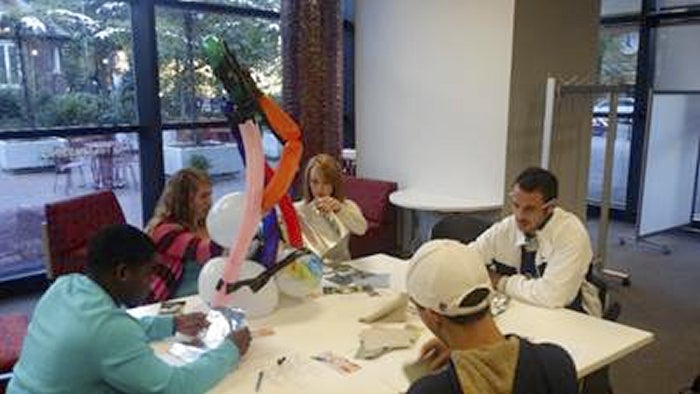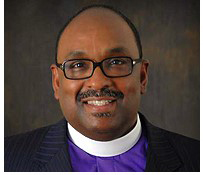Catawba First Year Seminars encourage hands-on interaction
Published 12:00 am Thursday, December 25, 2014

- SUBMITTED PHOTO Linda Kesler's First Year Seminar students complete the "THINK IT UP" challenge at Discovery Place in Charlotte.
By Dr. Forrest Anderson, Assistant Professor of English
Catawba College’s first-year seminar class, called “NASCAR: Moonshiners to Millionaires,” took a victory lap through the heart of NASCAR Country in mid-November.
On turn one, students learned more about the history and heritage of the sport at the NASCAR Hall of Fame in Charlotte.
Turn two found the class ‘taking it to the bank’ at 70 miles per hour around the Charlotte Motor Speedway in Concord.
For turn three, the class cruised into Michael Waltrip Racing in Cornelius, for a behind-the-scenes look at car fabrication and assembly.
In turn four, the students pitted at McDonald’s for ice-cream and excited conversation about their day.
The field trip served as the final experience for the first-year seminar taught by Dr. Jim Hand, an assistant professor and director of athletic training.
Catawba’s first-year seminars help students make a smooth transition from high school to college. One hallmark of the program is that students examine a subject from the perspective of multiple disciplines to encourage the development of critical thinking skills.
Hand’s first-year seminar class was one of 19 seminars offered to Catawba freshmen during fall 2014. Other first-year seminar offerings that included out-of-class experiences for the students were “The food, people and art of the American South” with Dr. Forrest Anderson, assistant professor of English; “Villains and heroes” with Dr. Lyn Boulter, professor psychology; “Creative expression: Oral, written, aural, and otherwise” with Linda Kesler, an adjunct faculty member; and “Honors: An apple a day: Multiple perspectives on medicine” with Dr. Margy Stahr, associate professor of English and director of the Writing Center.
Hand designed his seminar around a scholarly article he co-authored with Travis Teague of Wingate University, “Motorsport Governance: NASCAR.” His students studied the evolution of the sport from its humble beginnings in moonshine through the modern racing era.
“The NASCAR Hall of Fame was special as we were able to see and touch the cars and artifacts that we learned about in class,” Hand said.
Catawba freshman Austin Moyer agreed.
“At the Hall of Fame, we were able to see a moonshine still and the cars Red Byron and Marshall Teague drove during the infancy of the sport,” he said.
Moyer, an avid racing fan from Mooresville, known as Race City USA, said his favorite moment was seeing the cars on Glory Road. “It was just so awesome to see all the cars from different periods of NASCAR’s history.”
Moyer also relished a chance meeting at the Hall with Brian Keselowski, a race car driver currently competing in the NASCAR Sprint Cup Series.
Even students without much interest in racing prior to this first-year seminar enjoyed the Hall of Fame.
“I knew very little about NASCAR,” Brittany Hahn, a sophomore from Asheville and a Teaching Fellow in the First Year Student Program, said. “I knew they drove many laps at different tracks every week and that they had very colorful cars.”
Hahn, who majors in Athletic Training, enjoyed the hands-on exhibits that featured safety innovations in the sport.
Hands-on experience was the theme for the trip.
“The track and the shop served as experiential learning for the newest era of the sport,” Hand said.
At the Charlotte Motor Speedway, students experienced the thrill of racing with a drive down Pit Road, a stop in Victory Circle, and two laps around the superspeedway.
Adam Harper, a freshman from Goldsboro, said it was incredible “going around the track and stopping on the fourth turn to see the drop from the top of a 24-degree incline.”
Yet, the class agreed that Hand saved the most exciting part of the trip for last. Hand contacted a colleague, Pam Brown, who works as the head athletic trainer for Michael Waltrip Racing, and arranged a behind-the-scenes tour of their shop.
There the students saw all aspects of racecar fabrication, from the gears and transmission, to the paint booth, to final assembly. Brown also opened up a hauler for students to see how racecars travel to events, showed students the replica pit where the crew practices stops, and invited them into the gym where the crew trains.
Other out-of-the-classroom experiences in First-Year Seminar included:
- “The Food, People and Art of the American South” seminar traveled to the Levine Museum of the New South in Charlotte, where students toured the exhibit, “Food and Farming, Past and Present.”
The tour opened with the “southern plate:” collards, grits, salted pork, and livermush. Each item on the plate represented a culture that contributed to the southern culinary traditions.
Students then experienced how each dish evolved from reconstruction to the present day local food movement. The class then walked to Mert’s Heart & Soul to enjoy some of those culinary traditions.
- “Villains and Heroes” students wrote, illustrated and designed children’s books about real people who have the social impact of a hero. The class then traveled to Isenberg Elementary School and read their book to kindergarten classes.
- The “Creative Expression: Oral, written, aural and otherwise” class traveled to Discovery Place in Charlotte to put class theory into practice.
The premise of the course is that groups of people need to innovate and learn how to do things differently. So, students in this course engage in innovation-generation experiences, one of which was participating in the “THINK IT UP!” challenge. In addition to revving up their inner innovator, students and Professor Linda Kesler and Teaching Fellow Nathan Wyatt also enjoyed the museum and lunch in Charlotte.
- The “Honors: An apple a day: Multiple perspectives on medicine” seminar welcomed Catawba alum Roger T. Follas to a class session to hear about his career in Public Health Administration.
Follas is currently the sexually transmitted disease prevention coordinator for the North Carolina Department of Health and Human Services and has had an extensive career with the Centers for Disease Control and Prevention.
Other first-year seminar classes ate meals together, attended speaker events and movies, celebrated the Day of the Dead, or attended the Yiassou Greek Festival in Charlotte.




